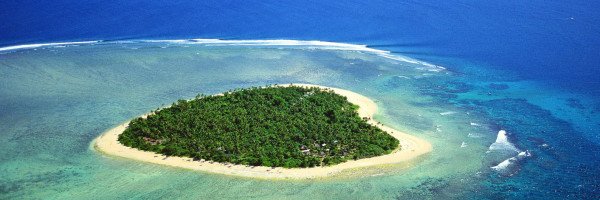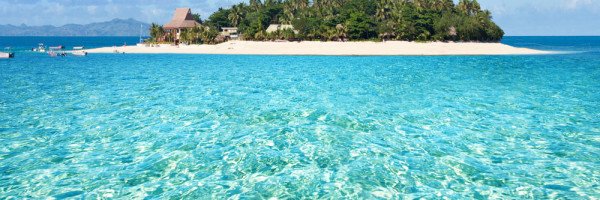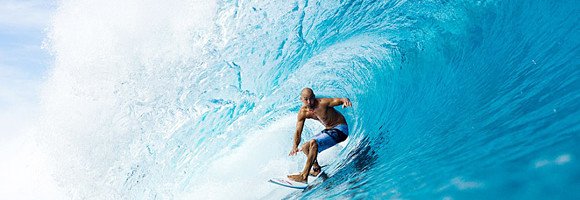The Cultural Roots of Kava in Fiji
Kava, or ‘yaqona’ as it is locally known, is deeply embedded in the cultural and social fabric of Fijian life. The significance of kava ceremonies stretches back centuries, with roots tracing back to ancient Polynesian traditions. The beverage is made from the root of the kava plant, which is ground and mixed with water to create a muddy, earthy drink that is both revered and respected. Kava ceremonies are not merely social gatherings; they are a vital part of the community, serving as a mechanism for social cohesion and unity among the Fijian people. In Fiji, kava is often consumed during important communal events, such as weddings, funerals, and the welcoming of guests. The ritual is steeped in respect, and partaking in kava is a gesture of goodwill and acceptance. The traditional preparation of kava is an art form in itself, often accompanied by chanting and music, which adds layers of meaning to the experience. The ceremony can take on various forms, from informal gatherings among friends to formal events involving local chiefs and elders, highlighting the beverage’s versatility and deep-seated role in Fijian culture. For those in New Zealand interested in experiencing kava rituals, consider visiting local Fijian communities or cultural festivals that celebrate Polynesian traditions. Engaging with these events can provide a deeper understanding of the significance of kava in social customs. More insights into Fijian culture can be explored at Fiji Islands.The Social Dynamics of Kava Drinking
Kava ceremonies are unique social events that foster connections among participants. The act of sharing kava is symbolic of unity, and the hierarchical structure of the ceremony often mirrors societal relationships. Traditionally, the chief or a respected elder presides over the ceremony, and the first bowl of kava is often offered to them as a sign of respect. This practice reinforces social hierarchies and cultural norms, allowing participants to engage in a meaningful exchange that transcends mere beverage consumption. The process of drinking kava involves specific rituals, such as clapping before and after consuming the drink, which enhances the communal experience. Each participant has a role, contributing to the collective atmosphere of respect and celebration. This social dynamic is crucial in a society where relationships and community bonds are paramount. For New Zealanders looking to incorporate these customs, organizing a kava night with friends or family can be an excellent way to understand the communal aspect of kava drinking. Invite guests to share their thoughts, stories, or music, similar to Fijian ceremonies. This can create a rich, engaging environment that mirrors the spirit of Fijian social customs.The Role of Kava in Fijian Identity
Kava is more than just a drink; it is a vital component of Fijian identity. For many Fijians, the beverage is synonymous with their cultural heritage and serves as a marker of their social identity. The preparation, serving, and consumption of kava are rituals that embody the values, traditions, and collective memories of the Fijian people. Through the act of drinking kava, individuals reaffirm their connection to their ancestry and their community. The significance of kava extends beyond its immediate social context; it is a symbol of resilience and adaptability in the face of changing cultural landscapes. As globalization influences traditional practices, kava remains a steadfast element of Fijian culture, adapting to new contexts while maintaining its core significance. For New Zealanders of Fijian descent, participating in kava ceremonies can be a way to reconnect with their roots and preserve their cultural identity. Organizations in New Zealand that celebrate Fijian heritage often hold events where kava is served, providing a platform for cultural exchange and strengthening ties to Fijian traditions. More information about Fijian identity and kava’s role can be found at Fiji Islands.Kava and Spiritual Connections
Kava ceremonies often carry spiritual significance, serving as a conduit for connecting with ancestors and the divine. In many Fijian communities, kava is believed to facilitate communication with the spiritual realm, making it an essential part of religious and spiritual practices. The drink is often used in rituals that seek blessings, guidance, and protection from ancestral spirits. During significant life events, such as births or initiations, kava is offered in prayer and as a token of respect to the ancestors. This connection to spirituality adds a profound layer to the kava experience, transforming it from a simple social drink into a sacred ritual. For New Zealanders interested in exploring the spiritual dimensions of kava, attending a traditional ceremony can provide insights into its role as a bridge between the physical and spiritual worlds. Participating with an open heart and mind can enhance the experience, allowing individuals to feel the weight of history and tradition intertwined with every sip.The Health Aspects of Kava Consumption
Kava has garnered attention not only for its cultural significance but also for its potential health benefits. Traditionally, kava has been used to promote relaxation and alleviate anxiety, making it a natural remedy in Fijian medicine. The active compounds in kava, known as kavalactones, are believed to have calming effects, which contribute to its popularity as a social drink. Research has shown that moderate consumption of kava can lead to reduced stress and improved mood. In Fijian culture, this is often experienced during kava ceremonies, where the communal atmosphere and the effects of the drink work together to create a sense of well-being. However, it is essential to approach kava consumption responsibly, as excessive intake can lead to adverse effects on health. For New Zealanders considering kava for its potential benefits, it is crucial to source kava from reputable suppliers and to understand the appropriate dosages. Engaging in kava ceremonies can be a way to enjoy its benefits while also embracing the cultural practices that surround it. For more information on kava and its effects, visit Fiji Islands.Kava’s Place in Modern Fijian Society
In contemporary Fiji, kava remains a pivotal element of social life, adapting to modern influences while retaining its traditional roots. The introduction of kava bars and commercial kava products has made the beverage more accessible, particularly to tourists and expatriates. This commercialization has sparked discussions about the authenticity of kava experiences and the balance between preserving tradition and embracing modernity. Despite these changes, kava ceremonies continue to be crucial for maintaining social ties and cultural heritage. They serve as a reminder of the importance of community, respect, and connection in an increasingly globalized world. Modern Fijians often find ways to incorporate traditional practices into contemporary settings, ensuring that kava remains a relevant and cherished part of their cultural identity. For those in New Zealand interested in experiencing kava in a modern context, consider visiting local kava bars or Fijian cultural events. Engaging with the community and learning about the evolution of kava can deepen your appreciation for this significant aspect of Fijian culture.Experiencing Kava Ceremonies in Fiji
For anyone wishing to immerse themselves in the rich tradition of kava ceremonies, there is no better place than Fiji itself. Visitors can experience authentic kava rituals in local villages, where community members are eager to share their customs with tourists. These experiences often involve not just tasting kava but also participating in the preparation and learning about its cultural significance. Travelers should approach these ceremonies with respect and openness, as each village may have its own unique practices and protocols. Engaging with locals and participating in the customs can lead to an enriching experience that transcends typical tourism. New Zealanders planning a trip to Fiji should consider scheduling visits to villages known for their kava ceremonies. This not only supports the local economy but also fosters cultural exchange. For tips on planning a trip to Fiji and experiencing kava firsthand, visit Fiji Islands, where you can find resources and guides tailored to immersive cultural experiences.FAQs
What is kava and why is it important in Fijian culture?
Kava is a beverage made from the root of the kava plant, which holds significant cultural importance in Fiji. It is traditionally consumed during ceremonies and social gatherings, symbolizing hospitality, community bonding, and respect among participants, making it a vital element of Fijian social customs.
What are kava ceremonies and how are they conducted?
Kava ceremonies are formal gatherings where participants consume kava in a ceremonial manner. The process typically involves the preparation of kava, involving the grinding of the root and mixing it with water. Participants sit in a circle, often on woven mats, and the drink is served to each individual in a coconut shell, accompanied by traditional chants and protocols that underscore respect and unity.
What role does kava play in Fijian social customs?
Kava serves as a social lubricant, fostering camaraderie and strengthening relationships among community members. It is often present during important life events like weddings, funerals, and community meetings, where it symbolizes mutual respect and connection, reinforcing the communal bonds that are central to Fijian society.
Are there any specific rituals associated with kava ceremonies?
Yes, kava ceremonies are rich with rituals. These can include the invocation of ancestors, the presentation of the kava bowl, and the order in which participants drink. Each aspect is steeped in tradition, with specific roles often assigned to individuals based on social status, highlighting the importance of hierarchy and respect in Fijian culture.
How do kava ceremonies reflect Fijian identity?
Kava ceremonies are a profound expression of Fijian identity, encapsulating values such as respect, community, and tradition. Through these rituals, Fijians maintain a strong connection to their heritage and cultural practices, ensuring that these customs are passed down through generations, thus preserving their unique identity within the Pacific region.
Can visitors participate in kava ceremonies in Fiji?
Yes, visitors to Fiji are often welcomed to participate in kava ceremonies, although it is essential to approach these events with respect and an understanding of the cultural significance behind them. Engaging in a kava ceremony can provide tourists with a deeper insight into Fijian customs and a unique experience of local hospitality.
What are the effects of consuming kava, and are there any health considerations?
Kava is known for its calming and relaxing effects, often used to reduce anxiety and promote social interaction. However, it is essential to consume it in moderation, as excessive intake can lead to health issues, including liver damage. Visitors should be aware of these considerations and consult with health professionals if they have concerns about kava consumption while enjoying the rich cultural experiences on Fiji Island.
References
- Fiji Islands Official Tourism Website – A comprehensive resource on Fijian culture, including information about traditional ceremonies and the role of kava in social customs.
- Kava: A Review of its Botany, Phytochemistry, and Pharmacology – An academic article that discusses the significance of kava in Pacific Island cultures, including its use in ceremonies.
- The Social and Cultural Significance of Kava in Fiji – A research paper exploring the cultural importance of kava drinking and its role in Fijian society.
- Kava and the Politics of Tradition in Fiji – An article examining the political and social implications of kava ceremonies in Fijian culture.
- Fiji’s Vanishing Kava Ceremonies – A Cultural Survival article discussing the importance of kava ceremonies and the challenges they face in modern society.







